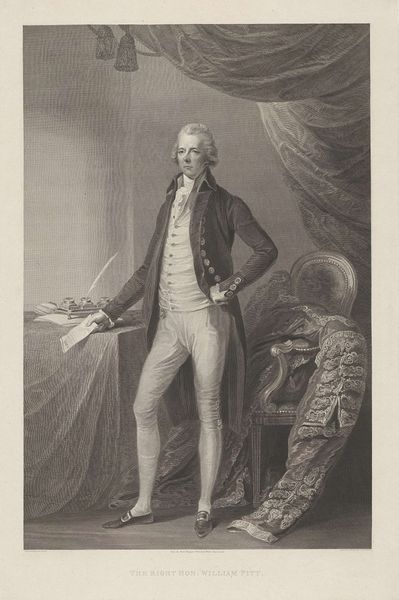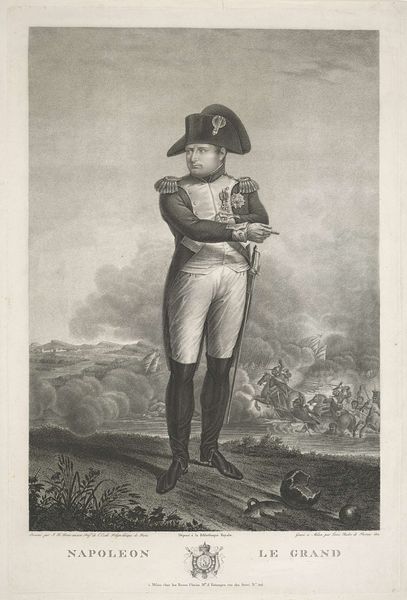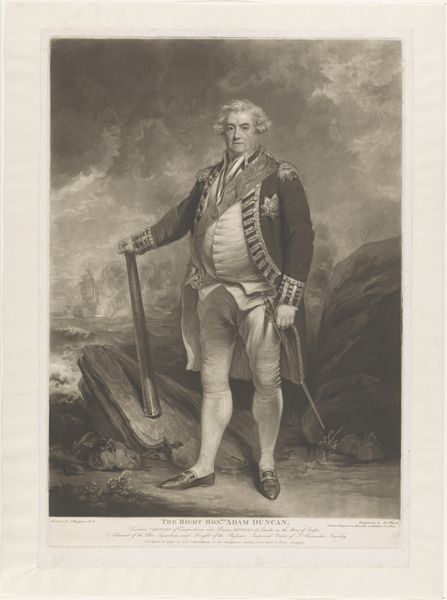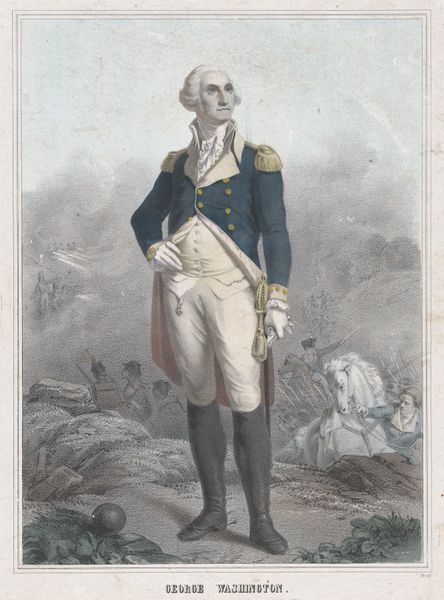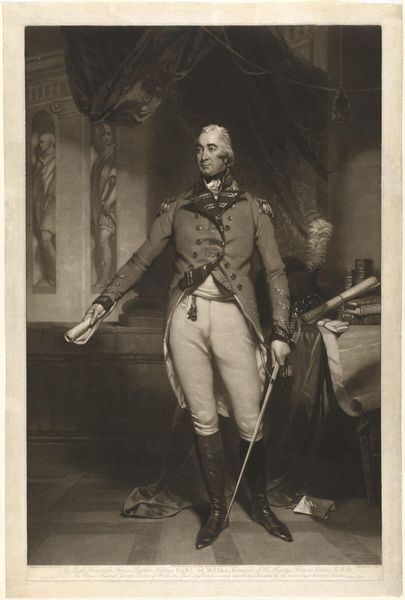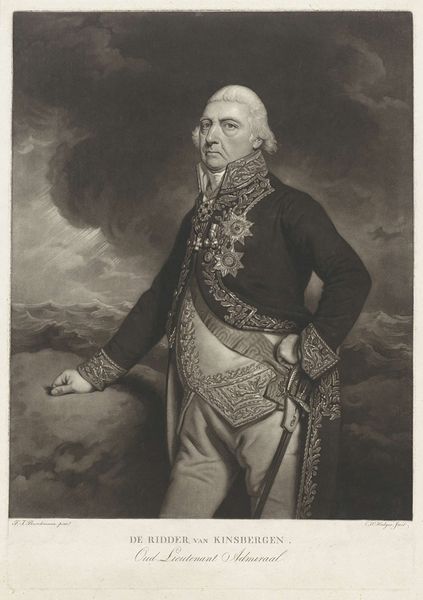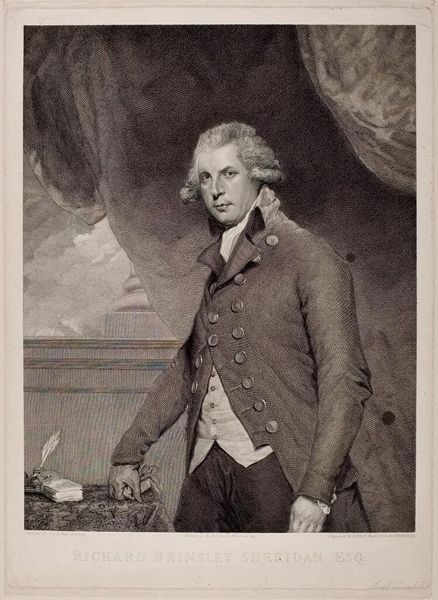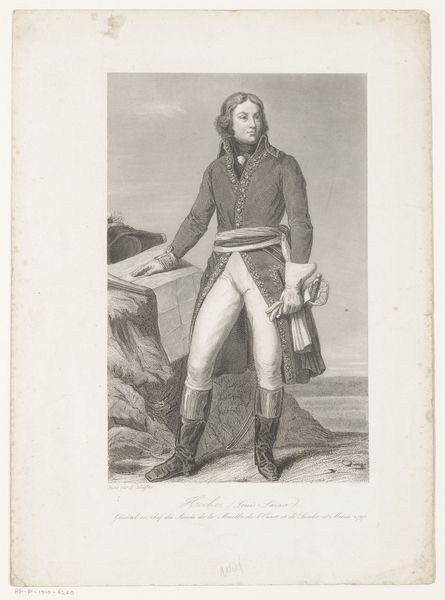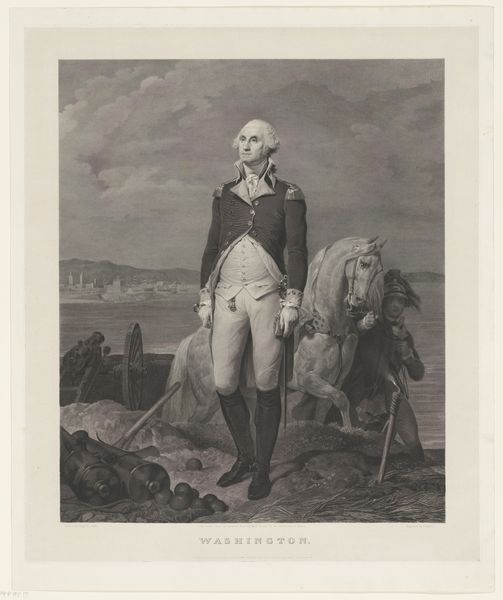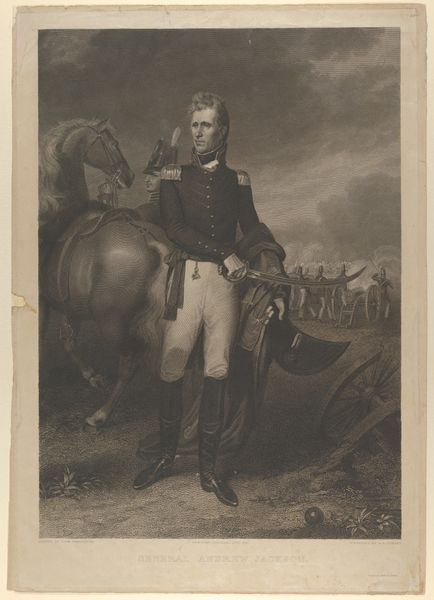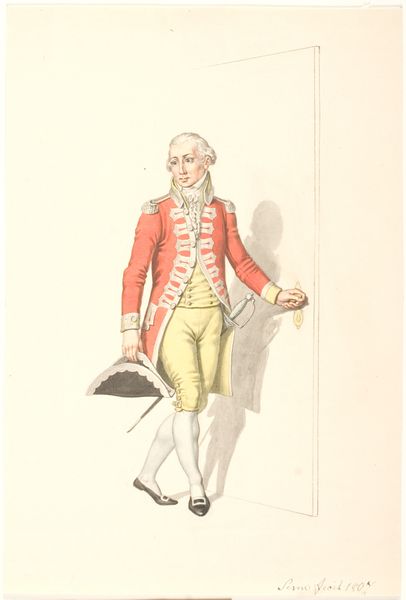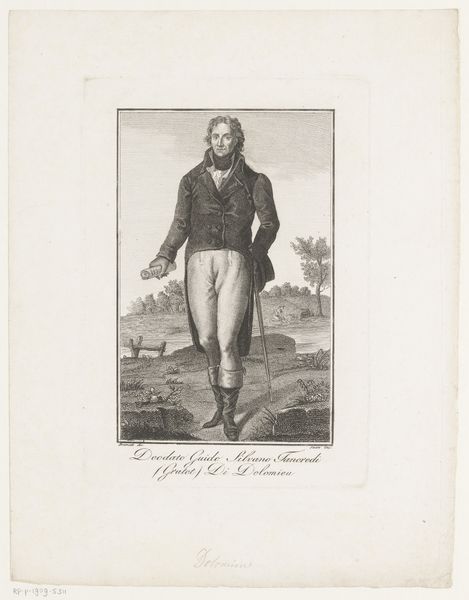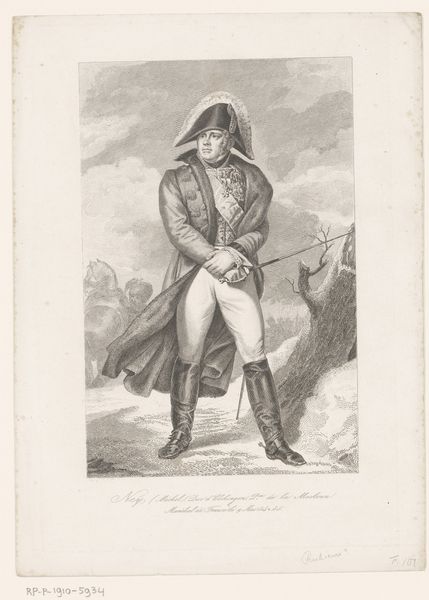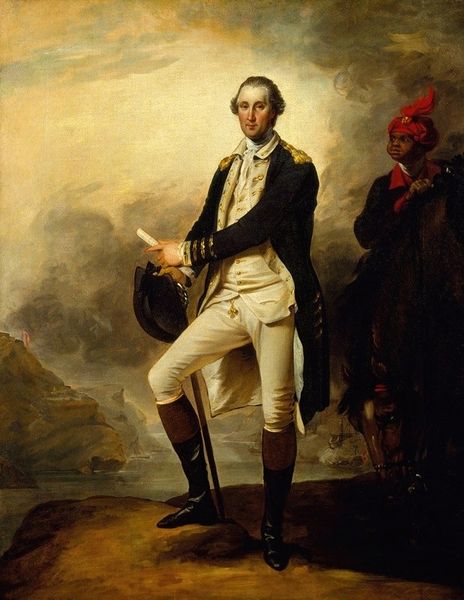
graphite, engraving
#
portrait
#
neoclacissism
#
pencil drawing
#
graphite
#
history-painting
#
academic-art
#
graphite
#
engraving
Dimensions: height 709 mm, width 470 mm
Copyright: Rijks Museum: Open Domain
This print of Horatio Nelson was made by William Bromley around the turn of the 19th century, using engraving. This is an intaglio process, where the image is incised into a plate, usually copper. Consider the physical effort. To create this image, lines would have been meticulously carved into the metal by hand, using tools called burins or gravers. Ink is then forced into these lines, and the surface wiped clean before printing. The final print is produced by pressing paper against the plate, transferring the ink. This process gives the print a characteristic raised texture, where the ink sits slightly proud of the paper's surface. Such prints democratized imagery. While an oil painting remained a unique, expensive object, engravings allowed images to be disseminated widely. In an age before photography, these were vital for circulating likenesses of important people like Nelson. In this way, the print medium was closely tied to politics, labor, and consumption. By understanding its production, we see how this artwork participates in a wider cultural and economic landscape, blurring the lines between art, craft, and industry.
Comments
No comments
Be the first to comment and join the conversation on the ultimate creative platform.
